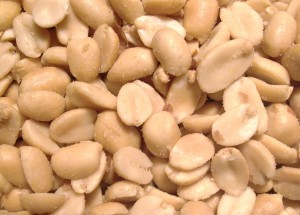
A probiotic treatment for peanut allergy has been successfully trialled by Australian researchers at the Murdoch Children’s Research Institute.
The researchers said their findings showed that there was potential for a long term cure for peanut allergies to be developed.
Probiotic trial
The researchers gave over 60 peanut allergic children in the study either a dose of a probiotic, Lactobacillus rhamnosus, together with peanut protein in increasing amounts, or a placebo over 18 months to assess whether children would become tolerant to peanut.
The probiotic was a fixed daily dose, while the peanut oral immunotherapy was a daily dose of peanut protein starting at very low doses followed by a dose increase every two weeks until the maintenance dose (2 grams peanut protein) was reached. At the end of the treatment, the child’s ability to tolerate peanut was assessed by a peanut challenge performed two to five weeks after stopping treatment.
Astoundingly, researchers found over 80 per cent of children who received the oral immunotherapy treatment were able to tolerate peanut at the end of the trial, compared to less than 4 per cent of the placebo group. The researchers said this was 20 times higher than the natural rate of resolution for peanut allergy.
Twenty-three of 28 (82.1 per cent) probiotic treated children and one of 28 (3.6 per cent) placebo-treated children were able to include peanut in their diet at the end of the trial. The likelihood of success was high – if nine children were given probiotic and peanut therapy, seven would benefit.
Potential to develop long term treatment
Lead researcher, Associate Professor Mimi Tang said the study results were “extremely exciting” as they could potentially provide an effective treatment for food allergy.
“In the study the combined delivery of probiotic and oral immunotherapy was a safe and effective treatment for peanut allergy,” Associate Professor Tang said. “However, it is important to point out that this treatment must be only be given under close medical supervision as we are giving peanut to children who are allergic to peanut, and children did have allergic reactions,” she said.
“It appears that we have been able to modify the allergic response to peanut such that the immune system produces protective responses rather than a harmful response to the peanut protein,” Associate Professor Tang said.
The Murdoch Children’s Research Institute researchers said further research was now required to confirm whether patients can still tolerate peanut years after the study has finished.
Increase in peanut allergies
Peanut allergies have increased over 350 per cent in the last 20 years. The need for a curative treatment is greatest for peanut allergy since this is usually lifelong, and is the most common cause of fatality due to food induced anaphylaxis.
Peanut allergy rates in Australia
In Australia, food allergies affect 10 per cent of infants, 4-8 per cent of children aged between 5 and 13 years, and roughly 2 per cent of people over 13.
Among children, peanuts are the most common food allergy (along with cow’s milk and egg), affecting an estimated 3 per cent of Australian children by the age of 12 months, according to Dr Raymond Mullins, Chair of the Australasian Society of Clinical Immunology and Allergy (ASCIA) Anaphylaxis Working Party, and nearly 80 per cent of those with peanut allergy did not grow out of the problem. Dr Mullins said this means that if the rate of peanut allergy was uniform across Australia, there could be approximately 9,000 new cases of peanut allergy each year.
Other peanut allergy treatment studies
Australian Food News reported in August 2013 that researchers at US respiratory hospital, National Jewish Health, had identified the enzyme that is essential to allergic reaction to peanuts. They found that blocking the enzyme’s activity in sensitised mice prevented diarrhea and inflammation, and reduced levels of several proteins associated with allergies.





